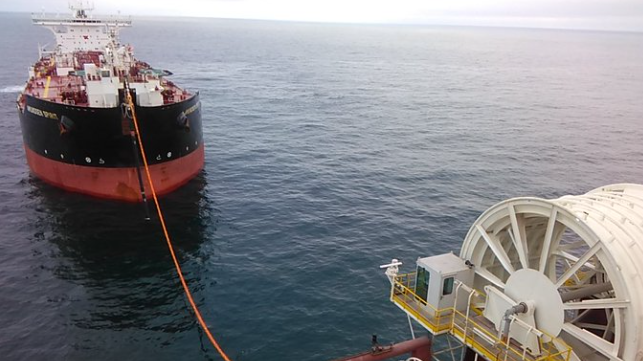Rystad: UKCS Output Will Never Again Exceed Two Million Barrels a Day

The Oslo-based consultancy Rystad Energy says that the U.K. Continental Shelf has passed a sobering milestone: oil and gas production will likely never exceed two million barrels of oil equivalent per day again, despite promising exploration results.
According to Rystad, UKCS output dropped from 4.3 million boepd in 1999 to less than two million boepd in 2010, and it has not recovered since. However, in recent years, newcomer Hurricane Energy has announced discoveries in previously-unexplored fractured basement formations containing an estimated 2.3 billion barrels of oil equivalent - enough to lift the UKCS' fortunes once more.
“Basement plays offer massive potential throughout the world. They are considered by some to be more difficult and expensive to evaluate than clastic reservoirs, but I don’t agree. All that is restricting their exploration and exploitation is the procurement of good quality data - and imagination,” Hurricane Energy CEO Dr. Robert Trice told Geo ExPro Magazine in 2017.
In 2019, Hurricane started production at its Lancaster field, one of its most promising finds. Initial production from two wells yielded about 14,000 bpd, but Hurricane has reported higher than expected water production and more rapid reservoir pressure decline. Upon a full review of the reservoir's structure and potential, Hurricane determined that it would have to drastically revise its reserve estimates downwards across its full portfolio. The revision is not a small amount: its estimated reserves have fallen from 2.3 billion down to 0.2 billion barrels of oil equivalent.
“The entire UKCS long-term production forecast has been impacted quite significantly. The main takeaway here is that we may never again see any significant production upsurge in UKCS production. A possible game-changer could now only be a development of technical skills for producing from fractured basement reservoirs to increase the recovery factor," said Olga Savenkova, upstream analyst at Rystad Energy.
Fractured basement reservoirs can be challenging to evaluate, as the oil in these formations is stored in multitudes of cracks in hard rock (rather than the uniform pores of sandstone or shale). According to Rystad, the volumes produced are typically small when compared with standard oil-bearing formations. The consultancy cautions that it is difficult to estimate the true size of a fractured basement reservoir from the results of a short-term well test.
The devastating reduction in Hurricane's estimated reserves appears to set the UKCS on a period of irreversible decline, Rystad concluded. "Our projections now show that [UKCS] production will never again exceed the threshold of 2 million boepd but will instead reach a maximum of 1.7 million boepd in 2035 before dwindling to nearly nothing by the middle of the century," the firm wrote.
